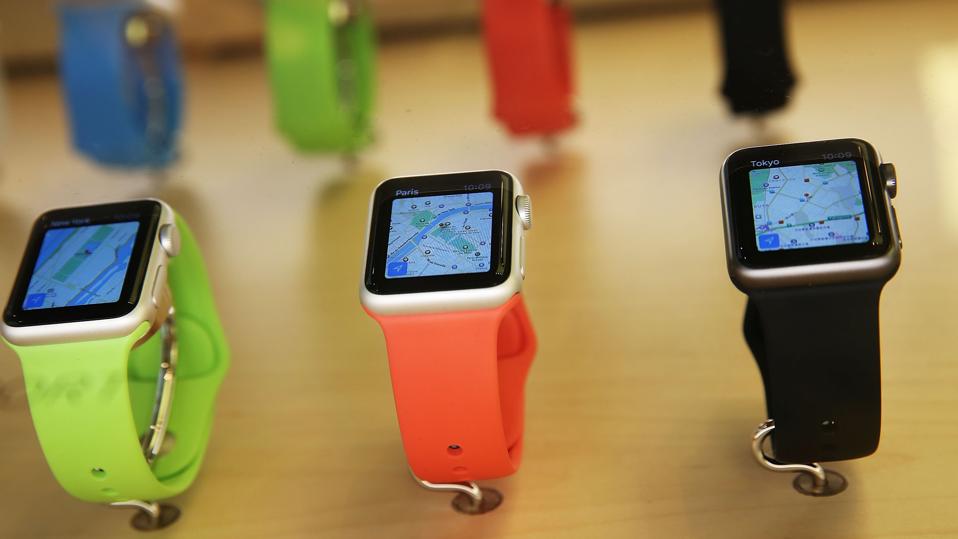A federal appeals court ruled Wednesday that Apple cannot import its Apple Watch models that include a blood oxygen feature while an appeal of a ban implemented by the International Trade Commission plays out in court—the latest blow to Apple as it battles a patent infringement case over its watch technology.

Apple may have to stop importing two of its Apple Watch series for a year or more, Bloomberg reported. (Photo by Spencer Platt/Getty Images)
Getty Images
Key Takeaways
- Wednesday’s ruling denies Apple’s request to extend a stay on the import ban and instead upholds the ban on the Series 9 and Ultra 2 watches as the case plays out, which could take more than a year, Bloomberg reported.
- Apple had requested the appeals court allow the import of the watches while it appeals the ban, which stems from a lawsuit by health technology company Masimo that argued the devices infringed upon its patents of a pulse oximeter function to read blood oxygen levels.
- The import ban—which briefly went into effect in December—will be reinstated at 5 p.m. EST on Thursday.
- Apple is still able to import and sell watches that don’t have the blood oxygen reading capabilities while the appeal is considered.
- Forbes has reached out to Apple for comment on the court’s decision.
Key Background
The ITC ruled in October that Apple had infringed upon a patent by Masimo for the technology used to measure blood oxygen levels and ordered Apple to stop importing and selling watches that had that ability; Apple maintains it did not use Masimo’s technology. In one of Masimo’s suits against Apple, its CEO alleged that Apple recruited its employees and stole trade secrets around blood oxygen measurement that infringed upon Masimo’s patents.
The ITC gave the Biden administration a chance to reverse the decision, but the administration ultimately upheld the ban, leading to an appeal from Apple, which argued that it would “suffer continuing irreparable harm to its reputation and goodwill” if it was not allowed to sell Apple Watches with the technology. Before the administration upheld the decision, Apple preemptively stopped selling the watches in December, though other retailers were still able to sell them.
Tangent
On Monday, a court filing revealed that U.S. Customs and Border Protection decided Apple would be allowed to sell versions of the two banned models that are redesigned to not include the blood-oxygen detection technology. Apple has not yet detailed the redesign, though, according to Reuters, and the ITC has the power to reverse the ruling.
This article was first published on forbes.com and all figures are in USD.


